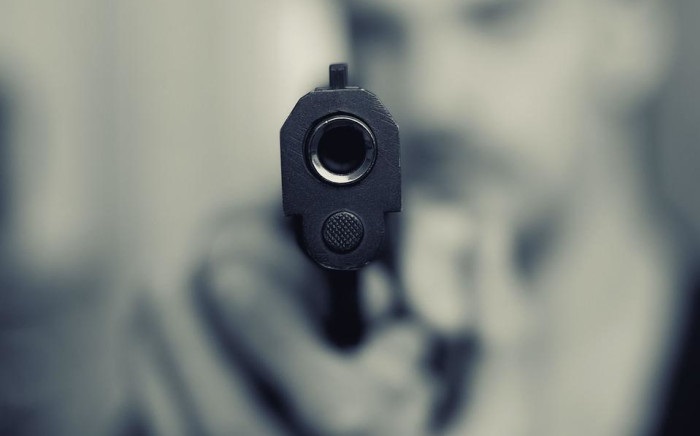On May 24, only ten days after a mass shooting in Buffalo, New York, the United States witnessed another mass murder by 18-year-old Salvador Ramos. The mass shooting at Robb Elementary School in Uvalde, Texas, killed 19 students and two teachers while injuring 17 others.
“In the United States, gun-related violence has become one of the leading causes of death among young people,” says criminal defense attorney Kristen McPhie of Grand Canyon Law Group. Aside from young people, adults are also the victims of these recurring massacres in the US. However, one way to prevent future painful events like this is to strengthen gun laws in the United States.
Challenges Facing the Moves to Strengthen Gun Laws in the United States
Following each recurring mass shooting, there is a hindrance to calls for action in Congress. Disappointed gun-control advocates and worried citizens blame the National Rifle Association(NRA) and the filibuster for this.
The Filibuster
It is difficult for Congress and the Senate to pass gun control legislation that will strengthen gun laws in the United States. The requirement of 60 votes in the legislature to pass a bill is the most significant restriction on Congress. The reason is that governments must overcome the filibuster, which allows members of Congress to stop legislation if it lacks the required 60 votes.
During President Obama’s first term, the Democratic Party held 60 Seats in the Senate at two points. It means that if all Democrats voted in favor, they could overcome the filibuster and pass any law that came their way.
The Obama administration witnessed no enactment of significant gun control legislation. The legislation included restrictions on expanded background checks, those on terrorist watchlists, and other measures. Despite having such a legislative position, there was no significant progress.
The Gun Lobby
The gun lobby is another issue that Democrats face when attempting to limit the availability of firearms. The gun lobby, sponsored by the National Rifle Association (NRA), goes the extra mile to support gun advocates in Congress. The NRA is the largest gun-owners organization in the US that currently lobbies against gun control laws, arguing that more guns make the nation safer.
The organization spends approximately $3 million annually to influence gun policy in the United States. On the other hand, the assumption on the amounts it spends on Political Action Committees (PACs) is that it is much larger and difficult to track.
According to Open Secrets (a group that tracks political money flow in America), gun rights PACs gave Republican candidates $1,763,280 between 2019 and 2020. They also gave Democrats more than $33,000. With the influence of the organization supporting the Republican Party, it is difficult for the Senate to agree to additional gun restrictions.
What Can Be Done to Strengthen Gun Laws in the United States?
The mass shooting at a Texas elementary school has increased calls for a unified approach to reform gun laws in the United States. However, to put an end to these unlawful killings, President Biden announced the following administration steps to combat gun crime:
#1. Bring Back the High-capacity Magazines and Assault Weapons Ban
Clinton signed legislation prohibiting assault weapons and large-capacity magazines in 1994. The ban included different types of semi-automatic weapons, such as AK-47s and AR-15s.
During the ten years the ban was in effect, mass shootings decreased. However, after Republicans allowed the law to expire in 2004 and the sale of the weapons kicked off again, the number of mass shootings tripled. Thus, bringing back the ban on assault weapons and high-capacity magazines will help reduce mass shootings in the United States.
#2. Enact National Red-Flag Laws
National red flag bills have been introduced in Congress but have consistently failed. However, some states already have red flag laws enabling courts to seize firearms from people at risk of harming themselves or others. The red-flag law is currently in effect in 19 states and the District of Columbia.
Certain groups of people who have expressed concern about the behavior of someone can request Extreme Risk Protection Orders (ERPO) under red flag laws. The request often comes from parents or close relatives of the individual, school officials, district lawyers, and police officers.
Enacting the law nationwide will enable eligible petitioners to request ERPO when someone close to them exhibits violent tendencies, threatens classmates, or has suicidal thoughts. Thus, enacting it nationwide will aid in preventing individuals who are more likely to harm themselves or others from carrying out their intended actions.
#3. Revoke the Immunity that Shields Firearms Manufacturers From Liability
The Protection of Lawful Commerce in Arms Act (PLCAA) protects gun manufacturers from liability. The PLCAA is a United States law that shields firearms manufacturers and dealers from liability when people commit crimes with their weapons.
Over the years, irresponsible and negligent sales practices by gun manufacturers, distributors, and dealers have contributed to the rise of illegal firearms in the country. Removing the liability protection will make these people sit up because of fear of being sued for the murder and destruction caused by their weapons.
#4. Enact Safe Storage Laws
Enacting safe storage laws and enforcing personal liability on those who fail to lock up their guns thus, resulting in gun-related crime, can reduce gun-related homicides. For instance, the Sandy Hook shooter came from a home where guns were easily accessible.
As a result, it enabled him to obtain the weapon he used to murder his mother and then 26 others, including 20 first-graders. With the storage law and personal liability in place, weapon owners will be legally responsible for securing their weapons.
The fear of being held liable if any gun-related violence happens will make gun owners restrict access to their firearms. They can even trigger-lock their guns to prevent unauthorized use.
#5. Strengthen Background Checks
Expanding background checks to cover almost all gun sales, including gun shows and online sales, will also help limit gun access. The expansion will assist in keeping firearms away from felons, fugitives, and individuals under restraining orders.
Furthermore, it can help close a loophole that allows a gun sale to go through after three business days, even without a complete background check. All these can help reduce unlawful gun-related homicides in the country.
Other steps to put an end to gun-related unlawful killings include:
- Banning ghost guns that do not have serial numbers and are thus, untraceable
- Raising the purchase age for firearms from 18 to 21 years old
- Enacting strict gun-control laws to prevent gun trafficking and straw purchases
Bottom Line
If there is any hope of getting Congress to act on gun control, the filibuster will almost certainly need reformation or elimination. Otherwise, Republicans will be able to impose their aims even when most Americans disagree. There is no way to solve the escalating epidemic of gun violence in the US without first tackling its majority rule.

